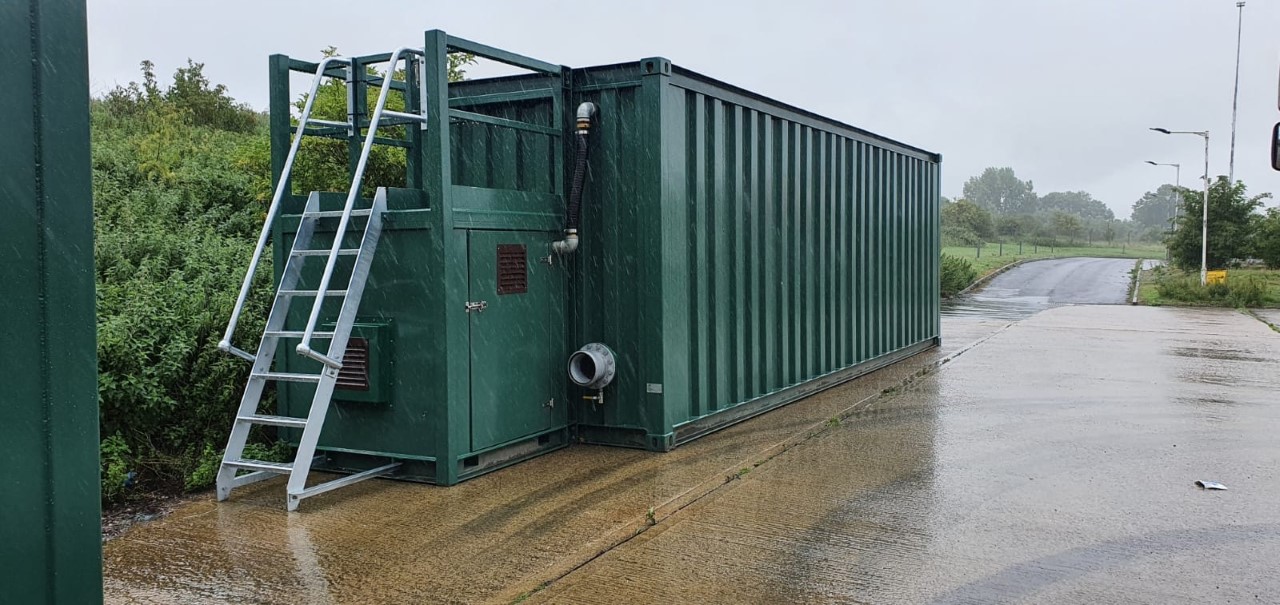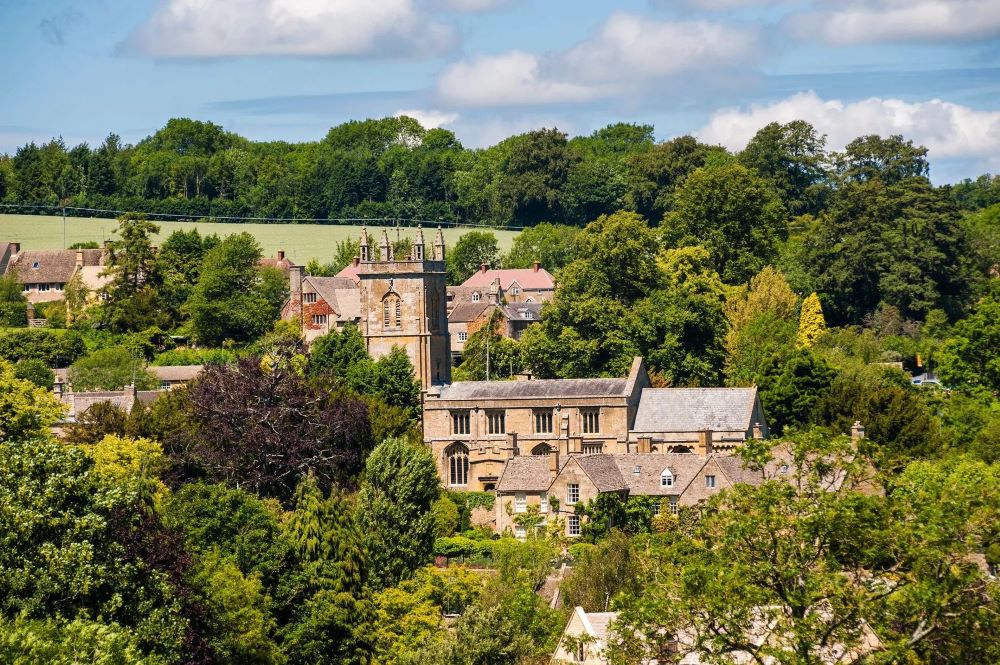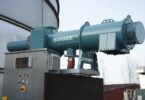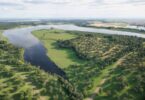Hired technology from WCS Environmental Engineering (WCSEE) is ensuring a wastewater treatment works in a picturesque Cotswolds village maintains strict compliance while undergoing a refurbishment.
Blockley village is within the Cotswold Area of Outstanding Natural Beauty (AONB) in Gloucestershire, UK. Its wastewater treatment plant serves a population equivalent of 2,360 and is currently being refurbished by utility Severn Trent Water and construction contractor Galliford Try, which is managing the project.
Three WCSEE Hybrid-SAF™ – submerged aerated filter – units, with dedicated control panels and blowers, were selected to provide secondary biological treatment on a temporary basis, while two trickling filter beds were taken out of service for refurbishment.
Modular in design, with a 30% smaller footprint than comparable technologies, the SAF units are built offsite and can be transported easily. The patented process technology employs a submerged moving-bed, fixed-film reactor, proven to treat wastewater with greater energy efficiency compared to traditional submerged SAFs, and in a tighter site footprint.

At Blockley, the units are treating a peak flow of 27.5 l/s while meeting strict environmental permit requirements of 15mg/l biological oxygen demand (BOD) and 2.5mg/l ammonia.
WCSEE utilities manager Andrew Haywood said, “When a water company upgrades a wastewater treatment plant, the permit standards set by the Environment Agency remain the same. This ensures protection of the local water environment is never compromised, while parts of the site are taken offline.
“Therefore, to meet their obligations and avoid penalties, it is a priority for water companies and their contractors to bring in reliable technology to continue the treatment process – in this case for the secondary stage – while maintaining compliance.
“Hiring mobile equipment brings utilities flexibility throughout their project. The technology can be in place for however long it is needed – weeks, months or in some cases, even years – and can be easily removed on completion, to be returned or transported to other sites if needed. The option to hire also brings reassurance for utilities who are carrying reactive, unplanned work.”
Luke Vardy, Galliford Try, project manager, said: “Galliford Try approached WCSEE early on in the Blockley scheme to produce a solution for temporary treatment requirements. Once installed, during the seeding period we allowed a 12-week time scale. The units seeded in just six weeks, saving time on the programme and allowing the refurbishment work to start sooner.
“The SAFs were a very important part of the temporary treatment due to the tight ammonia consents and we regularly took samples throughout the operational period to track performance. During this time, we didn’t experience any issues and the effluent results were stable throughout all weather conditions. We were impressed with the reliability and performance of the units.”
Simon Archer, design manager at Severn Trent Water said, “Severn Trent is committed to operating sewage treatment sites to a high standard so as to provide direct environmental protection and improve the quality of our rivers. When sites undergo refurbishment, we must ensure the treatment process continues to meet the high standards expected by customers and regulators.
“At Blockley, WCSEE’s SAF units are helping us and Galliford Try meet this requirement, by providing effective biological treatment while existing filter beds are temporarily offline.”







